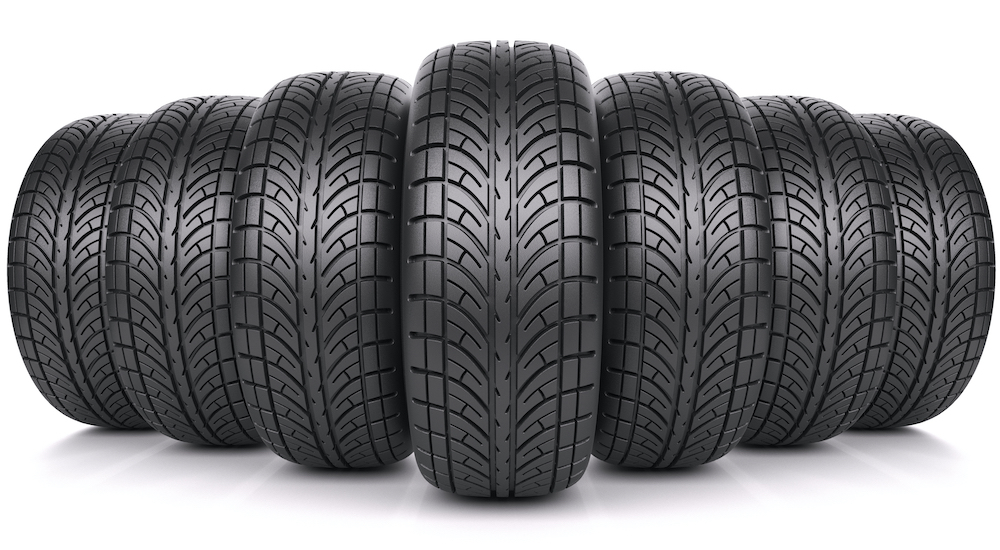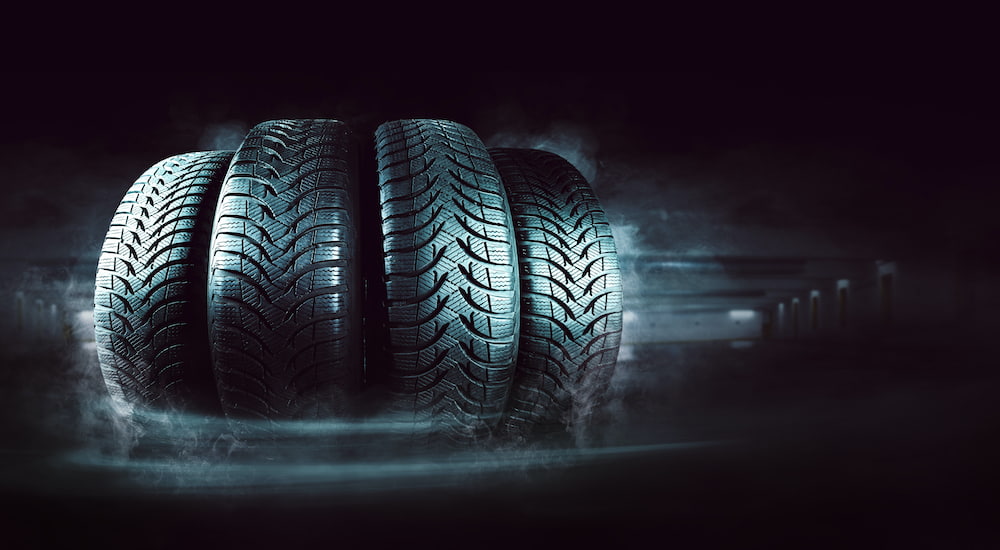Young drivers out there, I have good news: I’m about to share with you the most compelling and exciting information you’ve ever read. Are you ready? Well, too bad because I lied – this is actually going to be about the tires on your car, and there’s just no way to make that kind of thing really pop. That being said, having good rain tires or other tires designed for the kind of road conditions you’re dealing with really is important, and it can let you have a lot more fun behind the wheel.
If you’re looking for a TLDR, it’s this: the right tires for the kind of weather and roads you drive on will let you stay in control, so you’re safer and can enjoy driving more easily. But which tires are the right tires on the road? That’s a good question, and it’s one I’m going to help you with today. You might not think of your tires all that much when it comes to working on your car; it’s not as romantic as popping the hood and leaning over your engine to change a spark plug or check your oil – but it’s equally, if not even more, important.

Do Tires Really Matter?
Yes, tires matter. I’ll say it again for the people in the back (as you young people say): the tires on your car really, really matter. I probably should’ve added a hand-clapping emoji between each word to really make my point, or perhaps offered this advice in the form of a trendy TikTok dance, but I won’t embarrass either of us by doing that… for now…
Anyways, back on topic, the tires on your vehicle are extremely important – it doesn’t matter if you have a car, truck, SUV, golf cart, stair-car, or any other ride; the tires are vital. You’ll probably hear old people shout things at you like, “the tires are the only part of your car that touches the road” to really emphasize this point. That’s true, but it doesn’t necessarily tell you why you should care.
Everything you do while driving – applying the brakes, pushing the accelerator, or turning the steering wheel – goes through your tires. Press the accelerator? The engine creates power that’s sent to your tires. Hit the brakes? The stopping force is applied through the tires. I could go on, but you get the point.
So all of your control over your vehicle comes down to how well the tires are able to respond to what you tell them to do. With the right ones, like good rain tires when it’s wet out or all-terrain tires if you like to go off-road, they’re able to do exactly what you tell them to. Old and bare tires, or the wrong ones for a given situation, can’t respond well, and you’ll lack control.
Different Kinds of Tires
There are a fairly shocking number of different tires out there available to you, not to mention lots of different sizes and various manufacturers. Tire size is largely determined by your vehicle and the wheels on it, so you don’t have to think too much about that. Go with a major manufacturer, and you’ll be in good shape there. However, the different types of tires are quite important, so let’s get to know some common options.
All-Season – These are designed as good, all-around tires that don’t really specialize in anything, but they work well for a wide range of situations. They’re pretty good (but not great) at everything, from dry roads to light snow.
Summer – These are tires meant for use in warm weather, hence the name. They can be decent rain tires, depending on the ones you choose, but they should not be used in snow or ice.
Performance – A subset of summer tires, performance tires are designed for use at higher speeds, not necessarily on a race track, but they’re good for a sports car. Like all summer tires, they prefer warm weather.
Winter – These tires are specifically designed for use in cold weather, with rubber that’s engineered to remain soft and provide good traction when the temperature goes below 45 degrees. They are also designed to help snow and slush, with studded versions available for icy roads.
All-Terrain – You’ll usually find these tires on trucks and SUVs; they’re designed for going off-road and work well on pavement, sand, or gravel. They can be pretty good in mud and other conditions, though there are also mud-terrain tires if you do a lot of driving in the slop.
You’ll see some other options out there, like sport or touring, but for the most part, the ones I mentioned above are the most common. As long as you know these options and what each one is designed for, it’s easy to figure out which tires you need.
Which Tires do You Need?
And yet, I’m not going to leave you high and dry to figure out which tires you need; oh no, I’m going to help you. I’m just good like that. So, as we saw above, tires are designed with pretty clear purposes to them, and the right tire for you really depends on what kinds of conditions you tend to drive in.
If you live somewhere that gets a decent amount of stormy weather, then you definitely want some good rain tires to help you maintain control and avoid hydroplaning on the road. All-season tires can be great for that, especially if you are in a place with pretty mild winters and summers. If you live somewhere dry, like California or Arizona, then summer tires are a great choice as they are perfect for such warm locations.
Tires need to remain soft and pliable to give you excellent traction, which is why summer and even all-season tires aren’t great in extreme cold. If you live in the Midwest or somewhere else that gets down to freezing for a lot of the winter, with plenty of snow and ice, then you should absolutely invest in some winter tires. You can use them from about November through April, and you should be in good shape, switching to all-season or summer tires during the warmer months. That might seem like a hassle, but trust me, it’s worth it.

Other Tire Concerns to Keep in Mind
The right type of tire is very important, but you also need to keep your tires in good shape, which means checking their condition and replacing them as needed. You should regularly check on the depth of the tread on your tires: you can do this by sticking a penny into the tread, with Lincoln’s head facing down. If you can see the top of his head, then your tread is not deep enough, and it’s time to replace your tires.
Having your tires rotated on a proper schedule will help them last longer by letting them wear more evenly overall. This will also keep you in control since your tires won’t get too worn out in one spot as easily. I know all of this isn’t particularly flashy or exciting, but proper tire care will let you enjoy your vehicle a lot more and let you spend less money buying new tires.

